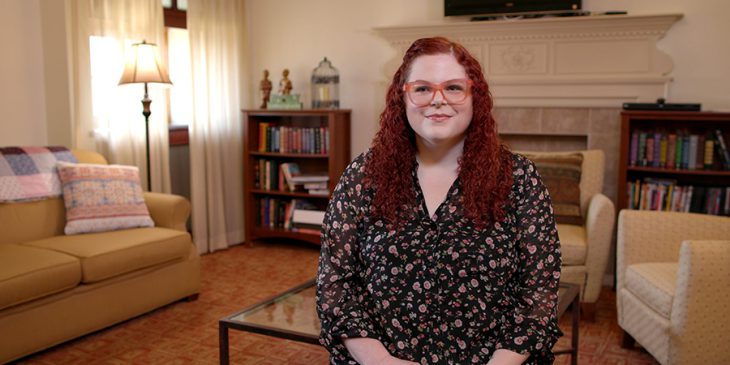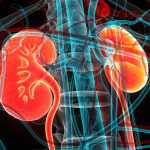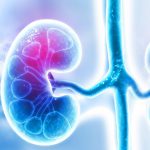Eight years struggling with substance use disorder, three years in recovery.
Eleven years ago, Ashlie Mikush, UPMC peer navigator, never would have dreamt her life would travel the road that it did.
“I was always an A student,” she said. “I had a 4.0 in graduate school. I never thought this would be me.”
During her last year of graduate school, Mikush was diagnosed with severe kidney stones. The pain was so intense that, at times, she couldn’t get out of bed, let alone attend classes.
“It took a toll on my life at the time,” she said.
Hoping to get back on track with her schoolwork, Mikush readily took the prescription opioids that her doctor had ordered, unaware of the risk of addiction.
“I had no clue,” she said. “I trusted the doctors, I trusted the health care professionals who were helping me. It wasn’t something that was going to cause the damage it’s caused in my life.”
Prior to suffering debilitating kidney stones, Mikush was seeing a therapist for anxiety and bipolar disorder. Regularly taking the opioids for her kidney stone pain, she quickly realized they also numbed her mental health symptoms.
“I found that the opiates took the emotional pain, the psychological pain I was dealing with away as well,” Mikush said. “It made me feel more confident, it made me feel less depressed — it felt great at first.”
Although her kidney stones eventually ceased, she was soon dependent on the opioids. She began to steal pills from her father, and eventually found a drug dealer when her family confronted her about her father’s missing medication.
“It was easier than I thought to find a drug dealer,” she said. “At first, I was getting pain medication, and then I moved on to Fentanyl and eventually heroin.
“At first, my family wouldn’t admit that I had a substance use issue. It wasn’t until they saw the withdrawal symptoms and how my tolerance went up that they started to realize it was an issue. And at that point, it was still a faux pas to have an addiction.”
For Mikush, a strong support system was always present, including the unconditional love of her husband.
Substance use disorder completely envelops the sufferer, and its tendrils also wind and stretch and thread their way into the lives of their loved ones. From parents, children and spouses, to siblings and co-workers, it strains all relationships. As hard as it may be for a sufferer to admit their dependence, it can be just as trying for a loved one to come to terms with.
“I didn’t tell a lot of people that she was in rehab, and I had no spare time for myself because I was taking care of the house — it was a lot trying to maintain our standard of living without her and that was exceptionally tough and eye-opening,” her husband, who asked to remain anonymous for this story.
While in rehab a second time, Mikush was exposed to medication-assisted treatment (MAT), specifically Suboxone®, to help wean her off opioids. It was the first time she felt normal in several years.
“Medication-assisted treatment was crucial to my recovery,” Mikush said.
Her journey may have been different than she imagined as a grad student, but the path ahead is equally promising.
Today, Mikush works as a peer navigator at UPMC — a mentor to patients who have current or past substance use disorders. She helps coordinate resources to help them recover. She also shares her own story to build a relationship of mutual respect and understanding to help her patients see that recovery is possible.
“Being able to help other people who are struggling with substance use disorder has really affected my recovery in a good way,” Mikush said. “It makes me want to keep going and keep fighting for people who don’t really have a voice.”
Learn more about Mikush’s story by clicking here.








